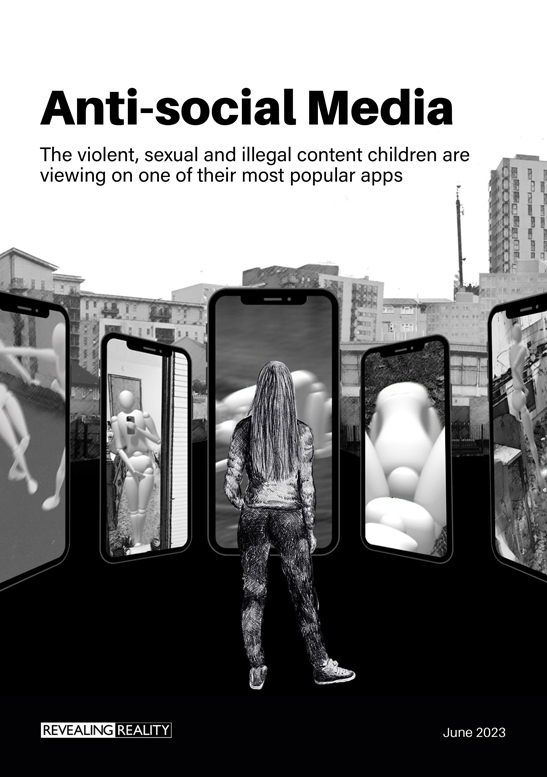This research reveals the stories and experiences of vulnerable children from across Britain routinely viewing videos of illegal activity – fights, beatings, stabbings, sexual assaults, “raids”; illegal content including sex acts involving children; and the sale of weapons and drugs online. Some children report seeing this type of content several times a day, every day.
They’re not viewing this content on the dark web, finding it buried on hard-to-reach websites or through clandestine underground networks. They see it on mainstream social media and messaging platforms, primarily on Snapchat.
As the evidence in this research reveals, Snapchat is being used by some people to arrange and amplify fights, build and destroy reputations, reinforce geographical rivalries. For certain demographics – young, urban, disadvantaged – it serves as the local news. And the larger this local violence, criminality and jostling for status looms in their lives – filmed, shared and reshared – the less the world beyond their neighbourhoods feels relevant to them. They live in a hyper-local bubble, which shapes their experiences, attitudes and expectations.
To people outside of these bubbles, this activity and its consequences are largely invisible. These children say they wouldn’t consider reporting unsuitable content – they’ve seen what happens to a ‘grass’.
The children who participated in this research do not represent all children. But their experience sheds light on how far removed much of the content they see on Snapchat is from what may be imagined in the mainstream, how quickly and widely this content can spread, how unsuitable – as well as often illegal – it is for children, and how badly it serves them.
We found similar experiences among children throughout Great Britain. The 13 children who participated in this research lived in some of the most deprived areas of Birmingham, Glasgow, London and Manchester.
We also interviewed and consulted a range of professionals and practitioners, including youth workers, police officers, liaison officers and school teachers, whose experiences and observations have also informed this research.
Anti-social Media is a piece of research we have undertaken independently and funded ourselves to explore what we considered to be an important but overlooked area of research into children’s experiences online.
Launch event
On the 6th June we held an online event to launch the report, which was attended by over 200 people.
The event was chaired by Baroness Beeban Kidron, and Revealing Reality’s managing director Damon De Ionno and associate director Ruby Wootton presented findings from the research.
They were joined by leading digital and child safety campaigners, who offered their perspective on the research and talked about what should be done to protect vulnerable children from these experiences:
Ofcom: Online safety policy team principal, Sarah Blight
Barnardo’s: Director of strategic partnerships, Jon Brown
NSPCC: Head of policy and public affairs, Anna Edmundson
You can watch the event in full below:

